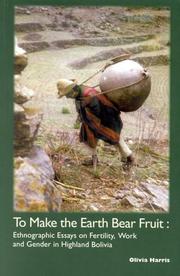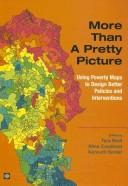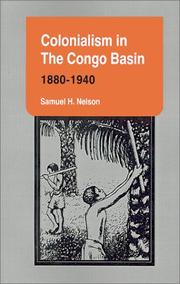| Listing 1 - 10 of 158 | << page >> |
Sort by
|
Book
ISBN: 9791037504104 Year: 2021 Publisher: Paris : Les arènes,
Abstract | Keywords | Export | Availability | Bookmark
 Loading...
Loading...Choose an application
- Reference Manager
- EndNote
- RefWorks (Direct export to RefWorks)
" Vivre sans argent cela vaut la peine. J'y ai trouvé plus de bonheurs que d'inconvénients. La libération intérieure et la reconnexion avec la nature n'ont pas de prix. " Mark Boyle. En suivant les règles strictes qu'il a lui-même mises en place, Mark revient à l'essentiel et trouve des moyens ingénieux pour se débarrasser de ses factures et s'épanouir dans la gratuité. Avec humilité, sagesse, et un grand sens de l'humour, Mark Boyle a écrit le livre culte de la décroissance.
Subsistence economy. --- Self-reliant living. --- Thriftiness. --- Boyle, Mark, --- Subsistence economy --- Self-reliant living --- Thriftiness --- Boyle, Mark, - 1979 --- -Subsistence economy. --- -Subsistence economy

ISBN: 190003929X 9781900039291 Year: 2000 Publisher: London: Institute of Latin American Studies,
Abstract | Keywords | Export | Availability | Bookmark
 Loading...
Loading...Choose an application
- Reference Manager
- EndNote
- RefWorks (Direct export to RefWorks)
Subsistence economy --- Sexual division of labor --- Sex role --- Women --- Peasants --- Fertility, Human --- Bolivians --- Potosí (Bolivia)
Book
ISBN: 2130379370 9782130379379 Year: 1983 Volume: 51 Publisher: Paris PUF
Abstract | Keywords | Export | Availability | Bookmark
 Loading...
Loading...Choose an application
- Reference Manager
- EndNote
- RefWorks (Direct export to RefWorks)
Social problems --- Poverty --- Pauvreté --- 339.12 --- Destitution --- Wealth --- Basic needs --- Begging --- Poor --- Subsistence economy --- armoede --- Poverty. --- Pauvreté --- Pauvrete --- Aspect sociologique
Book
ISBN: 9782757890585 2757890581 Year: 2022 Publisher: Paris : Points,
Abstract | Keywords | Export | Availability | Bookmark
 Loading...
Loading...Choose an application
- Reference Manager
- EndNote
- RefWorks (Direct export to RefWorks)
Le travail fantôme est le travail non rétribué réalisé par tout un chacun au sein de la société. Or ces activités indispensables au bon fonctionnement du capitalisme sont invisibles ou invisibilités. Ainsi s'ajoute à la peine des hommes un labeur de l'ombre imposé à des victimes consentantes mais qui pourraient bien un jour en demander compte. Ivan Illich s'adresse ici aux « colonisés » , c'est-à-dire à une immense majorité de gens pris en main, pris en charge, mais qui commencent à revendiquer leurs responsabilités à travers la mise en oeuvre d'une société conviviale
Subsistence economy --- Economic anthropology --- Economic development --- Industrialization --- Economie souterraine --- Capitalisme --- travail --- capitalisme --- économie souterraine --- société --- Wages. --- Work. --- Capitalism. --- Social aspects.
Book
ISBN: 8870131696 9788870131697 Year: 1993 Volume: 28 Publisher: Grottaferrata Collegii S. Bonaventurae
Abstract | Keywords | Export | Availability | Bookmark
 Loading...
Loading...Choose an application
- Reference Manager
- EndNote
- RefWorks (Direct export to RefWorks)
Poverty --- Religious aspects --- Catholic Church. --- Destitution --- Wealth --- Basic needs --- Begging --- Poor --- Subsistence economy --- Religious aspects&delete& --- Catholic Church --- Poverty - Religious aspects - Catholic Church.
Multi
ISBN: 9529616376 9789529616374 Year: 1993 Publisher: Åbo Åbo akademis förlag
Abstract | Keywords | Export | Availability | Bookmark
 Loading...
Loading...Choose an application
- Reference Manager
- EndNote
- RefWorks (Direct export to RefWorks)
Income distribution. --- Poverty --- Destitution --- Wealth --- Basic needs --- Begging --- Poor --- Subsistence economy --- Distribution of income --- Income inequality --- Inequality of income --- Distribution (Economic theory) --- Disposable income --- Theses --- Poverty. --- Income distribution

ISBN: 0821369318 9786611113193 1281113190 0821369326 9780821369319 Year: 2007 Publisher: Washington, D.C. : World Bank,
Abstract | Keywords | Export | Availability | Bookmark
 Loading...
Loading...Choose an application
- Reference Manager
- EndNote
- RefWorks (Direct export to RefWorks)
The allocation of resources and the design of policies tailored to local-level conditions require highly disaggregated information. Data on poverty at the local level is typically not available because most household surveys are not representative past the regional level. This volume aims to promote the effective use of Small Area Estimation poverty maps in policy making. It presents the range of policies and interventions which have been informed by poverty maps, focusing on the political economy of poverty maps and the key elements to their effective use by policy makers. The volume also loo
Electronic books. --- Poverty. --- Poverty --- Business & Economics --- Economic History --- Government policy --- Maps --- Destitution --- Wealth --- Basic needs --- Begging --- Poor --- Subsistence economy --- Poverty - Maps - Case studies --- Poverty - Government policy - Case studies
Book
ISBN: 9780199684823 0199684820 Year: 2014 Publisher: Oxford Oxford University Press
Abstract | Keywords | Export | Availability | Bookmark
 Loading...
Loading...Choose an application
- Reference Manager
- EndNote
- RefWorks (Direct export to RefWorks)
The Shame of Poverty invites the reader to question their understanding of poverty by bringing into close relief the day-to-day experiences of low-income families living in societies as diverse as Norway and Uganda, Britain and India, China, South Korea, and Pakistan. The volume explores Nobel laureate Amartya Sen's contention that shame lies at the core of poverty. Drawing on original research and literature from many disciplines, it reveals that the pain of poverty extends beyond material hardship. Rather than being shameless, as is often claimed by the media, people in poverty almost invariably feel ashamed at being unable to fulfil their personal aspirations or to live up to societal expectations due to their lack of income and other resources. Such shame not only hurts, adding to the negative experience of poverty, but undermines confidence and individual agency, can lead to depression and even suicide, and may well contribute to the perpetuation of poverty. Moreover, people in poverty are repeatedly exposed to shaming by the attitudes and behaviour of the people they meet, by the tenor of public debate that either dismisses them or labels them as lazy and in their dealings with public agencies. Public policies would be demonstrably more successful if, instead of stigmatising people for being poor, they treated them with respect and sought actively to promote their dignity. This book, together with the companion volume Poverty and Shame: Global Experiences, presents comparable evidence from the seven countries, challenges the conventional thinking that separates discussion of poverty found in the Global North from that prevalent in the Global South. It demonstrates that the emotional experience of poverty, with its attendant social and psychological costs, is surprisingly similar despite marked differences in material well-being and varied cultural traditions and political systems. In so doing, the volumes provide a foundation for a more satisfactory globalconversation about the phenomenon of poverty than that which has hitherto been frustrated by disagreement about whether poverty is best conceptualised in absolute or relative terms.
Poverty --- Social aspects --- #SBIB:316.8H15 --- Destitution --- Wealth --- Basic needs --- Begging --- Poor --- Subsistence economy --- Welzijns- en sociale problemen: sociale ongelijkheid en armoede --- Poverty - Social aspects
Book
ISBN: 9780745645964 9780745645971 0745645976 0745645968 1509546332 Year: 2021 Publisher: Cambridge Polity
Abstract | Keywords | Export | Availability | Bookmark
 Loading...
Loading...Choose an application
- Reference Manager
- EndNote
- RefWorks (Direct export to RefWorks)
Poverty remains one of the most urgent issues of our time. In this fully updated edition of her important and widely acclaimed intervention on the topic, Ruth Lister introduces readers to the meaning and experience of poverty in the contemporary world.The book opens with a lucid discussion of current debates around the definition and measurement of poverty in industrialized societies, before embarking on a multifaceted exploration of its varied interpretations. Drawing on thinking in the field of international development and real-life accounts, the book emphasizes key aspects of poverty such as powerlessness, lack of voice, insecurity, loss of dignity and respect.Ruth Lister embraces the relational, cultural, symbolic as well as material dimensions of poverty, and makes important links between poverty and other concepts such as capabilities, agency, human rights and citizenship. She concludes by making the case for reframing the politics of poverty as a claim for redistribution and recognition. The result is a rich and insightful analysis, which deepens and broadens our understanding of poverty today. It will be essential reading for all students in the social sciences, as well as researchers, activists and policymakers. (provided by publisher)
Poverty. --- #SBIB:316.8H15 --- Poverty --- Destitution --- Wealth --- Basic needs --- Begging --- Poor --- Subsistence economy --- Welzijns- en sociale problemen: sociale ongelijkheid en armoede --- armoede --- 339.1 --- Social problems

ISBN: 0896801802 9780896801806 Year: 1994 Volume: 64 Publisher: Athens (Ohio) : Ohio university. Center for international studies,
Abstract | Keywords | Export | Availability | Bookmark
 Loading...
Loading...Choose an application
- Reference Manager
- EndNote
- RefWorks (Direct export to RefWorks)
Imperialism. --- Mongo (African people) --- Oral tradition --- Subsistence economy --- Economic conditions. --- History. --- Social conditions. --- -Mongo (African people) --- -Subsistence economy --- Anamongo (African people) --- Balolo (African people) --- Mongo (Bantu tribe) --- Tshuapa River Region (Congo) --- -Tshuapa River Region (Congo) --- Imperialism --- Colonialism --- Empires --- Expansion (United States politics) --- Neocolonialism --- Political science --- Anti-imperialist movements --- Caesarism --- Chauvinism and jingoism --- Militarism --- Cost and standard of living --- Economic anthropology --- Poverty --- Tradition, Oral --- Oral communication --- Folklore --- Oral history --- Bantu-speaking peoples --- Ethnology --- Economic conditions --- History --- Social conditions --- Mongo (African people) - History. --- Mongo (African people) - Economic conditions. --- Mongo (African people) - Social conditions. --- Subsistence economy - Congo (Democratic Republic) - Tshuapa River Region. --- Oral tradition - Congo (Democratic Republic) - Tshuapa River Region.
| Listing 1 - 10 of 158 | << page >> |
Sort by
|

 Search
Search Feedback
Feedback About UniCat
About UniCat  Help
Help News
News